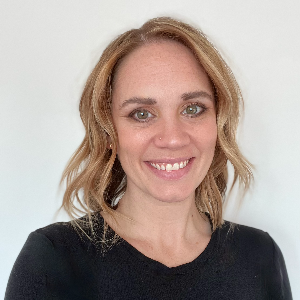Lactation Survey Responses Indicate New Parents’ Need for Breastfeeding Support

Real-life parents are echoing the pleas of the AAP.
By Ashley Ziegler
Back in June, the American Academy of Pediatrics (AAP) released a statement saying they were increasing their recommended breastfeeding time from one year to two years (or more), while also alerting the masses that lactating parents are in desperate need of more support. While some policy-makers and corporate leaders might have brushed off the AAP’s statement as soapbox rhetoric, it’s going to be much harder for them to continue to ignore the situation now—because real-life parents have weighed in on the issue. And, as it turns out, their cries for help directly align with the suggestions made by the AAP.
Earlier this month, Aeroflow Breastpumps released results from a June 2022 survey on lactation support. Survey questions focused on nursing mothers’ breastfeeding goals vs. reality, access to breastfeeding resources and supplies through insurance and employers, knowledge of lactation support programs and professionals, and the effects of the formula shortage on breastfeeding plans. They collected responses from 1,660 women throughout the month of June and, once the survey period had ended, quickly noticed a trend in the data: Parents are desperate for more resources, increased access, and better support when it comes to breastfeeding.
Survey Highlights
Of the survey respondents, 804 women were expecting and 856 were parents to at least one child between the ages of 0-2 years old. Out of this group, more than 90% of the expecting mothers said they plan to breastfeed, and just over 66% of new moms said they were either currently breastfeeding their child or had done so previously.
Breastfeeding goals versus reality
The survey asked both expecting parents and new parents what their breastfeeding goals had been (or are) before the baby’s arrival. The majority of respondents hoped to make it to nine months to a year of breastfeeding. Here’s the breakdown:
Expecting Moms
- Less than one month: .87%
- 1-3 months: 8.71%
- 3-6 months: 25.87%
- 6-9 months: 24%
- 9-12 months: 24.5%
- More than a year: 16.04%
New Moms
- 1-3 months: 12.94%
- 3-6 months: 19.36%
- 6-9 months: 18.79%
- 9-12 months: 28.29%
- More than a year: 20.62%
Despite these goals, once their baby was born, a lot of new moms fell short of their hope, with nearly 60% lasting six months or less.
- 12.22% lasted less than one month
- 24.19% lasted between 1 and 3 months
- 22.94% lasted between 3 and 6 months
- 13.47% lasted between 6 and 9 months
- 12.72% lasted between 9 and 12 months
- 14.46% lasted more than a year
When new moms were asked what caused them to stop breastfeeding, they provided some interesting insight. Nearly 50% said breastfeeding complications, such as clogged milk ducts, infections, mastitis, difficulty with latch, and low milk supply contributed to their decision to stop breastfeeding—all situations that might have been easier to manage with increased access to proper support and care. Similarly, just over 63% said increased access to breastfeeding support, such as a lactation consultant or support groups, would have allowed them to breastfeed longer.
Health insurance assistance
We all know how tricky health insurance can be to navigate. Some plans are amazing and cover everything, while others find a way to get out of paying for just about anything they can. Thanks to the Affordable Care Act (ACA), or what many refer to as “Obamacare”, insurance companies are required to cover breastfeeding support, counseling, and equipment (there are exceptions for plans that were grandfathered in, but those plans are limited). Still, despite this law and the known health benefits of feeding a baby breast milk, Aeroflow’s survey data indicates that many health insurance companies still only offer plan members very limited access to breastfeeding resources.
Only 56.84% of expecting mothers say their health insurance covers the cost of a breast pump, 44.65% offer coverage for breast milk storage bags, 33.46% provide coverage for lactation consulting, and only 28.23% have access to prenatal education courses through their health insurance. Because of these shortcomings, more than 87% of expecting moms are planning on paying out of pocket for these services.
As for new breastfeeding mothers, nearly 60% said their health insurance covers some or all of the cost of lactation consulting, and around 78% said they’d have participated in a breastfeeding support group or met with a lactation consultant if their insurance covered the expense. This means there’s a disproportionate number of moms who wanted breastfeeding support but weren’t offered financial help getting it. Additionally, while 70% of new moms were able to get a breast pump through their insurance, only 22% said their insurance covered the cost of essential pumping accessories like milk storage bags, tubes, and flanges.
Breastfeeding and employment
Even though there are federal laws in place that require employers to provide nursing parents with adequate break time and a safe space to pump (that isn’t a bathroom), the reality is that lactating parents need more. Oftentimes, employers have the resources to cover the shortcomings of health insurance when it comes to breastfeeding support, but way too many opt not to get involved. Parents are paying attention to this, and most of them would have no problem leaving their job to work for a company that offers better support.
According to the survey, of the respondents who are employed, 40% of expecting mothers’ and 57.5% of new mothers’ employers do not offer additional access to lactation support services that are separate from their health insurance. Given this information, it’s no surprise that 67.2% of expecting moms and 55% of new moms would consider leaving their job or changing careers for a company that offers better breastfeeding resources.
While the participants in this survey represent a small percentage of the number of new and expecting parents in the U.S., given the AAP’s stance on the need for increased breastfeeding support, it’s safe to assume that this data represents the feelings and struggles of many. Parents are falling short of their breastfeeding goals because they can’t afford the support they need. And it’s not OK.
It’s not a hopeless situation, though, because we have voices that matter. If you’re not ready to push for new benefits at work (we get it, your job is your livelihood, after all), start by contacting your state and federal representatives and asking them to support policies that benefit lactating parents. In order for things to change, we have to advocate for ourselves and for new and expecting parents everywhere.








